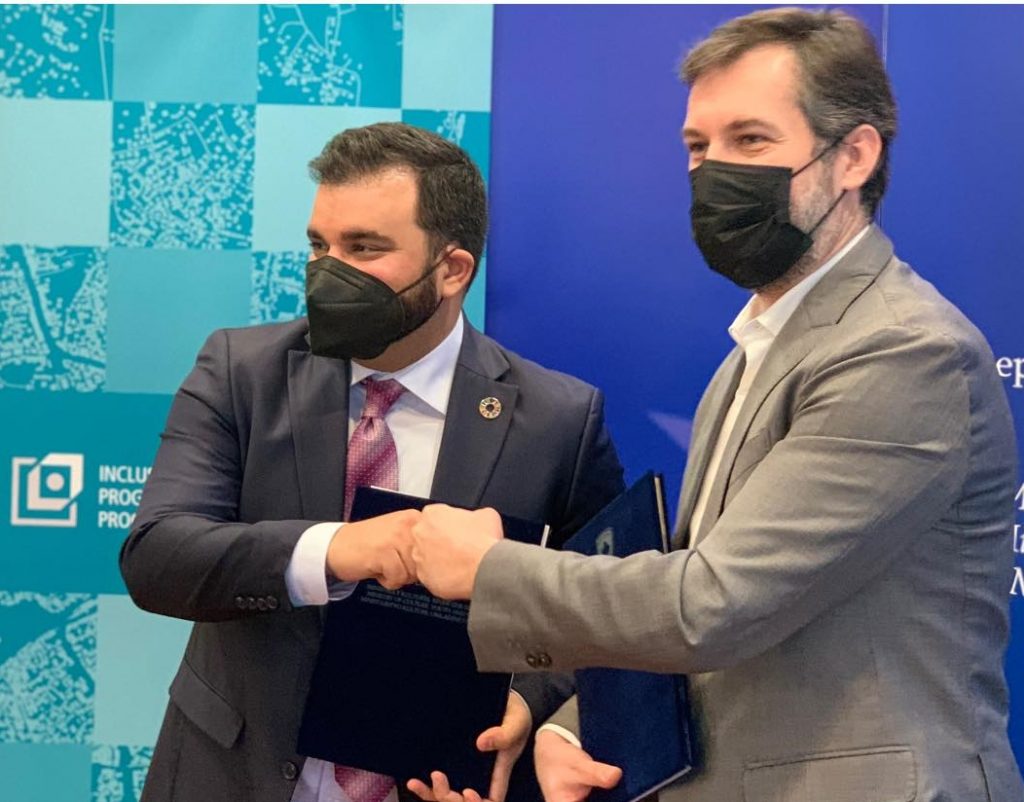- Media Center
 The Ministry of Culture, Youth and Sports partners with UN-Habitat Kosovo for the integration of cultural heritage in the framework of spatial planning for green, inclusive sustainable development
The Ministry of Culture, Youth and Sports partners with UN-Habitat Kosovo for the integration of cultural heritage in the framework of spatial planning for green, inclusive sustainable development16/12/2021

Head of UN-Habitat Kosovo, Omar Siddique and Minister of Culture, Youth and Sports, Hajrulla Çeku Integration of cultural heritage within spatial planning documents is a prerequisite to ensure effective protection of cultural heritage values.
In particular the protection, development, management and promotion of protected zones and historic centers can be ensured if a balance is struck between protection and controlled development.
Rapid developments in urban and rural areas, uncontrolled construction, are some of the main challenges faced by historic zones and centers in Kosovo.
Integrating cultural heritage into spatial planning documents is a necessary step to address these challenges, In this regard, the Ministry of Culture, Youth and Sports has concluded cooperation and co-financing agreements with the UN-Habitat in Kosovo, through the Inclusive Development Programme, funded by the Government of Sweden.
In the framework of this cooperation agreement for the next three years, it is foreseen the implementation of the development of the integrated conservation program, through a inclusive approach. This program envisages the development of projects in the field of integrated conservation, which include the development of a guide to the basics of integrated conservation, feasibility studies for protected zones and historic centers, and the development of conservation and development plans for protected zones and historic centers of Kosovo.
The Minister, Hajrulla Çeku stressed the importance of cooperation and coordination with institutions and strategic partners, in the field of planning and protection of cultural heritage, as an essential component of spatial development: “The inclusion of cultural heritage in spatial planning documents is a mandatory step in in order to ensure an effective protection, management and controlled development of cultural heritage in relation to developments at the level of spatial planning. This complex process requires maximum commitment and coordination from all institutions and actors operating in this field. In this regard, we are pleased that today we are taking steps towards cooperation, placing the integrated conservation component within the spatial planning agenda. “
The Head of UNHABITAT in Kosovo, Mr. Omar Siddique, emphasized that “Culture is a key element to humanizing municipalities and embodies the human face of sustainable development at the local level. Culture-empowered spatial strategies contribute to people-centered local governance models with bottom-up, participatory planning. The partnership launched today between UN-Habitat Kosovo and the Ministry of Culture, Youth and Sports is the first step in celebrating culture as a dynamic process for the reinvention of Kosovo’s municipalities towards more inclusive, green and liveable places.”
The launch ceremony of this program was attended by the Ambassador of Sweden, Ms. Karin Hernmarck, a state that supports the Inclusive Development Programme of UN-Habitat Kosovo, also director of the Department of Spatial Planning, Mr. Servet Spahiu, from MESPI.
The implementation is planned for the years 2021-2024 with co-financing from UN-Habitat and Ministry of Culture, Youth and Sports.

